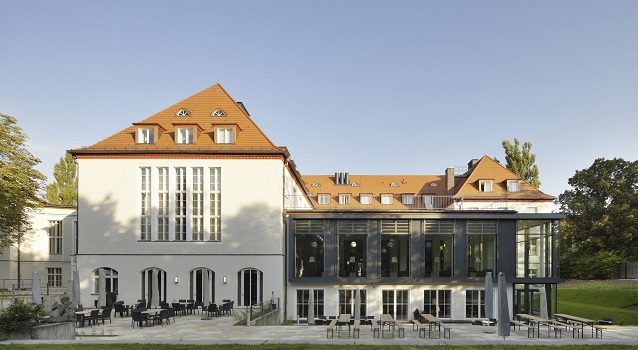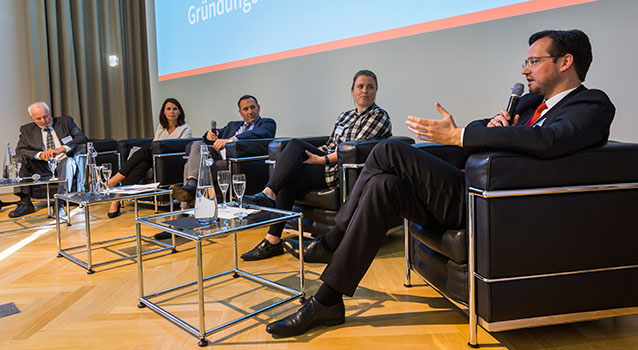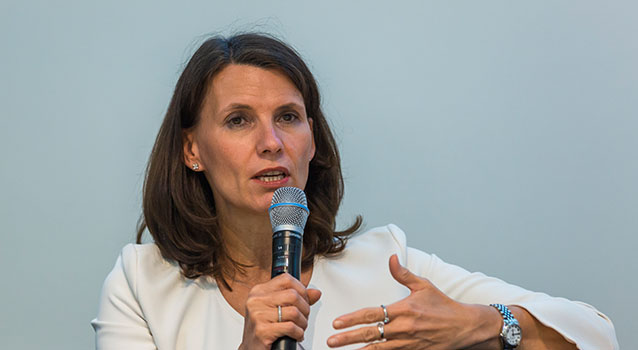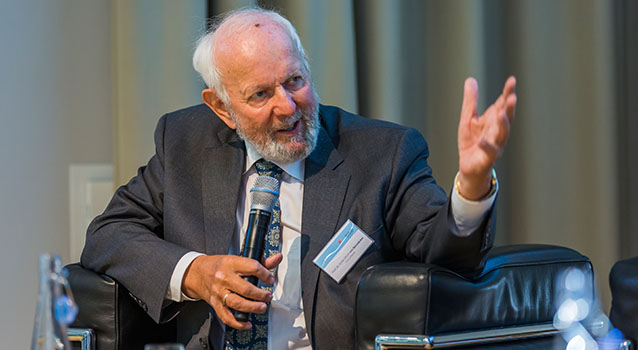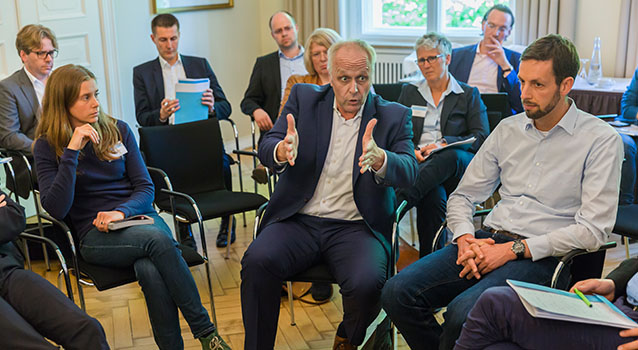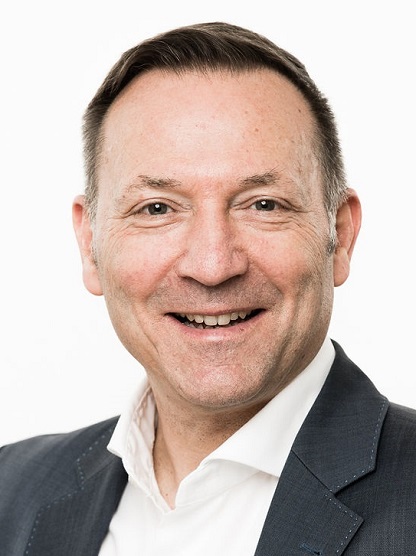Borderstep Impact Forum 2017
How do innovations and start-ups have to be funded in order for the transformation toward a green economy to succeed?
Making Money and Improving the World
How should innovations and start-ups be funded for the successful transformation toward a green economy? This question took center stage at the Borderstep Impact Forum 2017 held at the Max Planck Society’s Harnack-Haus in Berlin-Dahlem. The event was a festive culmination of the 10th anniversary of the Borderstep Institute for Innovation and Sustainability.
Which type of funding do green start-ups need?
Do we need to change course on innovation and start-up funding in Germany? Professor Ernst Ulrich von Weizsäcker, Co-President of the Club of Rome, Parliamentary State Secretary of the Federal Ministry of the Environment Rita Schwarzelühr-Sutter, and her counterpart from the Federal Ministry of Economics Dirk Wiese, along with founder Julia Römer from the start-up Coolar and Borderstep Director Professor Klaus Fichter addressed this point in a panel discussion.
The Borderstep Impact Forum 2017 was preceded by five specialist forums, where new approaches to sustainable start-up funding and practical questions about green start-up financing were discussed. Other forums addressed the role of innovation communities for the energy transition, the possibilities offered by innovation alliances for green computing, as well as the success factors for the diffusion of sustainability innovations.
Prices must speak the environmental truth
Ernst Ulrich von Weizsäcker used the Club of Rome’s new Fall 2017 report entitled Come On! as the foundation for his demand for reliable long-term political frameworks and clear economic incentives for innovation. The government-regulated continual rise in energy prices, according to actual improvements in economic efficiency, would lead to constant spending on energy for the consumers and businesses, revenue-neutral taxation levels, and predictable determining factors in innovation for businesses and founders. Only when prices represent the environmental truth, can innovation be steered in the right direction.
Innovation requires reliable frameworks
Rita Schwarzelühr-Sutter also underlined the importance of reliable long-term frameworks. These would be offered, for example, by the Climate Plan 2050 adopted by the German government in November 2016. The plan breaks down the determined emission reduction objectives for 2030 and 2050 by individual sectors. In order to meet the Climate Plan objectives, Schwarzelühr-Sutter recognized the urgent need to accelerate the spread of environmentally friendly innovation. These were all too often confined to the green niche, as studies from the Borderstep Institute have shown.
Innovating start-ups are the SME of tomorrow
Regarding the Climate Plan 2050, Dirk Wiese regrets that the grand coalition was unsuccessful in bringing the Building Energy Law forward. The law would have enabled new incentives for energy savings and innovative solutions for new construction in the public sector. He stressed that start-ups are the SME innovators of tomorrow and recognized the urgent need to promote social innovation alongside technical innovation.
Sustainability belongs in every business plan
That is how Julia Römer sees it, too. She invented a refrigerator with her start-up Coolar that runs on heat instead of electricity. However, Römer lamented that sustainability has not played a significant role in start-up funding up to now. “The social and environmental contribution of a start-up must be included in every business plan,” she demanded, receiving rounds of applause. Innovation alone would not be enough. “Once we became more familiar with the topic of sustainability, we identified the right business model,” explained Julia Römer on the podium. Now Coolar focusses on putting its refrigerators to use in countries with an unstable power supply. There, they can be used to reliably cool medicine and vaccines.
From economic to sustainable start-up funding
Borderstep Founder Klaus Fichter also underlined the necessity to expand start-up funding, which has so far been exclusively limited to economic objectives, to environmental and social sustainability goals. Based on Borderstep studies on the German start-up funding system, he called for a paradigm shift “from economic to sustainable start-up funding”. Instead of subject-neutral “watering can funding”, precise priorities for establishing companies should focus on areas that distinctly contribute to paramount social tasks for the future, such as those outlined by the German government in the Hightech Strategy. This would also and especially encompass sustainable economies.
Expanding funding programs to sustainability criteria
Ernst Ulrich von Weizsäcker and Julia Römer recognized the need for a change of course in innovation and start-up funding and called for a systematic integration of sustainability. Römer concretely suggested the funding program EXIST – University-Based Business Start-Ups from the German Federal Ministry for Economic Affairs to expand sustainability criteria. The Parliamentary State Secretary Dirk Wiese found this suggestion worth considering and promised to have it examined.
A journalist from the Deutsche Welle summed up her take-away from the Borderstep Impact Forum 2017 as follows: Making money and improving the world. The contributions on the podium have brilliantly illustrated that one doesn’t rule out the other.
